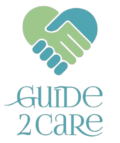Bringing a loved one home from the hospital can be both a relief and a challenge. Without proper discharge planning, families often find themselves unprepared for the responsibilities of continued care. At guide2care.org, we understand the complexities of transitioning from hospital to home care. This comprehensive guide will walk you through the essential aspects of discharge planning to ensure your loved one’s continued recovery and well-being.
What is Discharge Planning?
Discharge planning is a systematic process that begins shortly after hospital admission and continues until a patient returns home or transitions to another care facility. This crucial process involves healthcare providers, patients, and family members collaborating to create a comprehensive plan for continued care after hospitalization.

The goal of effective discharge planning is to reduce hospital readmissions, improve patient outcomes, and ensure a smooth transition to the next stage of care. Without proper planning, patients may face complications, medication errors, or gaps in necessary services that could jeopardize their recovery.
The Role of a Discharge Planner
A discharge planner serves as your navigational guide through the often complex healthcare system. These professionals, typically nurses or social workers with specialized training, coordinate all aspects of a patient’s transition from hospital to home or another care setting.
Your discharge planner will:
- Assess the patient’s ongoing medical needs
- Identify necessary home modifications and equipment
- Coordinate follow-up appointments and services
- Connect families with community resources
- Arrange for home health services when needed
- Provide education on medications and care procedures
At guide2care.org, we emphasize the importance of actively engaging with your loved one’s discharge planner as early as possible during hospitalization. Establishing this relationship early allows for more thorough preparation and a smoother transition.
When Does Discharge Planning Begin?
Many families are surprised to learn that discharge planning ideally begins at the time of hospital admission. Early planning allows healthcare teams to:
- Identify potential challenges to home care
- Arrange necessary services before they’re needed
- Provide adequate time for family education and training
- Address financial and insurance considerations
- Ensure all required medical equipment is available upon discharge
For planned hospitalizations such as scheduled surgeries, pre-admission discharge planning can begin weeks in advance. This proactive approach gives families valuable time to prepare their homes and arrange for necessary support services.
Key Components of Effective Discharge Planning

Medical Needs Assessment
A comprehensive discharge planning process begins with a thorough assessment of your loved one’s ongoing medical needs. This assessment typically includes:
The discharge planner will evaluate the patient’s ability to perform activities of daily living (ADLs) such as bathing, dressing, and meal preparation. This assessment helps determine what level of assistance may be required at home and what specific services should be arranged.
Additionally, the planner will consider the patient’s cognitive status, mobility limitations, wound care needs, and other medical conditions that require ongoing management. This information forms the foundation of the discharge plan.
Medication Management Planning
Medication errors are a leading cause of hospital readmissions. Effective discharge planning includes detailed medication management instructions. Your discharge planner should provide:
A complete list of all medications, including prescription drugs, over-the-counter medications, and supplements is essential. This list should clearly indicate which medications are new, which should be continued from before hospitalization, and which should be discontinued.
The discharge planner should ensure you understand the purpose of each medication, proper dosing schedules, potential side effects to watch for, and any special administration instructions. At guide2care.org, we recommend requesting written instructions and asking questions until you feel completely comfortable with the medication regimen.
Home Environment Evaluation
A safe home environment is crucial for recovery. Your discharge planner should help evaluate whether your home needs modifications to accommodate your loved one’s condition. This may include:
Assessing the need for bathroom safety equipment like grab bars, shower chairs, or raised toilet seats can prevent falls and injuries. For patients with mobility issues, the planner might recommend temporary or permanent ramps, widened doorways, or first-floor living arrangements.
The evaluation should also identify potential hazards such as loose rugs, cluttered walkways, or poor lighting that could increase fall risk. Making these adjustments before discharge helps ensure a safer transition home.
Care Coordination and Services Arrangement
One of the most valuable services a discharge planner provides is coordinating continued care services. This may include:
Arranging for home health services such as skilled nursing visits, physical therapy, occupational therapy, or speech therapy based on your loved one’s needs. The planner will work with your insurance provider to determine coverage and help set up the initial appointments.
For patients needing additional support, the discharge planner may arrange for personal care assistants, meal delivery services, transportation to medical appointments, or other community resources. At guide2care.org, we can help supplement these services with specialized care coordination tailored to your family’s specific situation.
Common Challenges in Discharge Planning
Despite best efforts, families often encounter challenges during the discharge planning process. Being aware of these potential obstacles can help you navigate them more effectively:

Communication Gaps
Miscommunication between hospital staff, patients, families, and community providers is unfortunately common. To address this challenge:
Designate one family member as the primary point of contact for all communications with the healthcare team. This person should attend planning meetings, take detailed notes, and share information with other family members as appropriate.
Don’t hesitate to ask for clarification if instructions seem unclear or contradictory. Request written materials whenever possible, and consider recording important conversations (with permission) for later reference.
Insurance and Financial Concerns
Understanding insurance coverage for post-hospital services can be confusing. Many families are surprised by coverage limitations for home health care, durable medical equipment, or rehabilitation services.
Your discharge planner should help navigate insurance issues, but be proactive in asking about coverage limitations, out-of-pocket costs, and alternatives if certain services aren’t covered. At guide2care.org, we can provide guidance on accessing financial assistance programs or alternative resources when insurance coverage falls short.
Family Caregiver Preparation
Many family caregivers feel unprepared for their new responsibilities. The discharge planning process should include:
Hands-on training for specific care tasks such as wound care, catheter management, or mobility assistance before discharge. Request demonstrations and supervised practice with the actual equipment you’ll be using at home.
Guidance on recognizing warning signs that require medical attention and clear instructions on who to contact in various scenarios. A good discharge plan includes contact information for healthcare providers and emergency services.
Special Considerations for Different Patient Populations
Elderly Patients
Older adults often have complex needs that require special attention during discharge planning:
Medication reconciliation is particularly important for elderly patients who may be taking multiple medications. The discharge planner should work closely with pharmacists to identify potential drug interactions and simplify medication regimens when possible.
Careful assessment for fall risks and cognitive changes is essential. The plan should address any memory issues that might affect medication adherence or ability to follow care instructions independently.
Patients with Chronic Conditions
Those with ongoing health conditions like heart failure, COPD, or diabetes require specialized discharge planning:
Disease-specific education about symptom management, dietary restrictions, activity guidelines, and monitoring protocols should be included in the discharge plan. Patients and caregivers should understand how to track key indicators like weight, blood pressure, or blood sugar levels.
Connection to chronic disease management programs, support groups, or specialized home health services can improve outcomes. The discharge planner should help arrange for continuous support for chronic condition management.
Post-Surgical Patients
After surgery, patients have unique needs that must be addressed:
Detailed wound care instructions, activity restrictions, and pain management protocols are essential components of surgical discharge planning. Physical therapy arrangements may be needed to restore function and strength.
Clear guidelines about when to contact healthcare providers about potential complications help prevent emergencies. The plan should specify what symptoms warrant immediate medical attention versus those that can wait for a scheduled follow-up appointment.
How guide2care.org Can Help
At guide2care.org, we specialize in supporting families through the discharge planning process and beyond. Our experienced care coordinators work alongside hospital discharge planners to ensure no detail is overlooked in your loved one’s transition home.

Our services include:
- Personalized care coordination that picks up where hospital discharge planning leaves off
- Ongoing assessment of changing care needs
- Connection to vetted service providers throughout the USA
- Family caregiver education and support
- Regular check-ins to address new challenges as they arise
- Advocacy for accessing appropriate healthcare services
We understand that discharge planning is just the beginning of your caregiving journey. Our team provides continuous support to help you navigate the evolving landscape of care needs.
Preparing for a Discharge Planning Meeting
To get the most from your discharge planning meeting, consider preparing these questions:
What ongoing medical care will my loved one need after discharge? How will these needs change over time?
What specific training do we need before discharge? Can we practice these skills with supervision before going home?
What equipment or supplies do we need? Where can we obtain these items, and will insurance cover them?
What follow-up appointments are needed? Have these been scheduled before discharge?
What warning signs should prompt us to seek medical attention? Who should we contact in various situations?
What community resources or support services are available to help us? How do we access these services?
Coming prepared with these questions helps ensure your discharge planner addresses your specific concerns and creates a more thorough plan tailored to your situation.
The Day of Discharge
The day your loved one leaves the hospital can be hectic. A well-executed discharge planning process should provide:
A written discharge summary that includes diagnoses, treatment received, medication instructions, and follow-up care plans. Review this document carefully before leaving the hospital.
Contact information for healthcare providers, the discharge planner, and any service agencies involved in continued care. Keep this information readily accessible.
Prescriptions for all medications, preferably filled before leaving the hospital or with arrangements made for delivery. Ensure you have an adequate supply to last until follow-up appointments.
All necessary medical equipment and supplies either delivered to your home or available for pick-up. Confirm delivery arrangements before discharge.
After Discharge: Implementing the Plan
Even the most comprehensive discharge planning may require adjustments once you’re home. During the first few weeks:
Follow the care plan diligently, but be prepared to contact healthcare providers if problems arise. Don’t wait for scheduled follow-up appointments if concerning symptoms develop.
Keep a journal of questions, observations, and concerns to discuss during follow-up appointments. This documentation helps healthcare providers address issues more effectively.

Reach out to your discharge planner if arranged services aren’t meeting expectations or if new needs emerge. They can help troubleshoot problems and adjust the plan as needed.
Frequently Asked Questions About Discharge Planning
Q: Can I request a specific discharge date or time?
A: While you can express preferences, discharge dates are primarily determined by medical readiness. Morning discharges are typically preferred to allow time for addressing any last-minute concerns.
Q: What if I don’t feel ready to care for my loved one at home?
A: Express these concerns immediately to the discharge planner. Additional training, services, or even a short stay in a rehabilitation facility might be appropriate options.
Q: How do I know if insurance will cover recommended services?
A: The discharge planner should verify coverage before finalizing arrangements. Request written confirmation of coverage and be clear about any out-of-pocket expenses.
Q: What if the discharge plan isn’t working once we’re home?
A: Contact your discharge planner or primary healthcare provider immediately. Plans often need adjustment once real-world challenges emerge.
Q: How long will home health services continue?
A: This depends on medical necessity and insurance coverage. Your discharge planner and home health agency should provide clear information about expected service duration.
Call to Action
Navigating the healthcare system during a vulnerable time shouldn’t be something you face alone. At guide2care.org, we’re committed to supporting families throughout the USA with expert guidance and compassionate care coordination.

Whether you’re currently working with a hospital discharge planner or struggling to implement a discharge plan at home, our team can help ensure your loved one receives the care they need for optimal recovery.
Contact us today for a free consultation about your specific situation. Our care coordinators serve families throughout the United States and can connect you with local resources tailored to your needs.
Visit guide2care.org or call our dedicated care line to learn how we can complement your hospital’s discharge planning process with ongoing support and expertise.
Conclusion
Effective discharge planning bridges the critical gap between hospital care and recovery at home. By actively participating in this process, asking thoughtful questions, and seeking appropriate support, you can significantly improve outcomes for your loved one.
Remember that the transition from hospital to home is just one phase in the care journey. At guide2care.org, we believe in providing continuous support as needs evolve and new challenges emerge. Our experienced team works alongside hospital discharge planners to ensure families throughout the USA receive comprehensive care coordination when they need it most.
Take the first step toward a smoother care transition by engaging actively with your discharge planner and reaching out to guide2care.org for additional support as you navigate this important responsibility.

